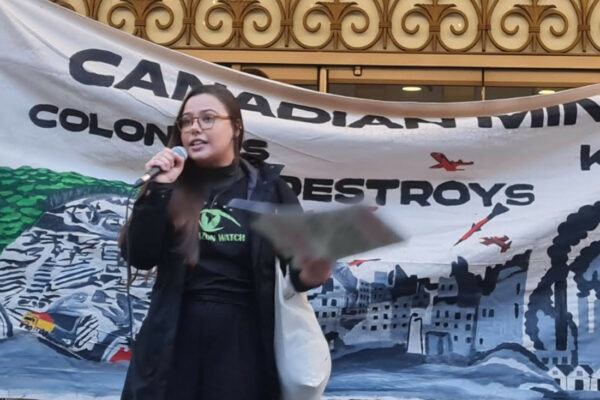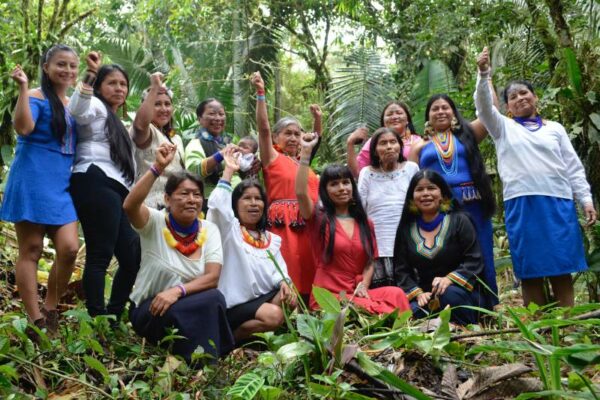Quito, Ecuador – Two heated debates about free trade
took place here last week, yet they were so different
they might as well have been on separate planets.
The most visible one was at a meeting of trade
ministers from the United States and 33 other
countries, who tried to hammer out a road map for
negotiating a free-trade zone from Canada to
Argentina. The other was led by ordinary citizens.
Inside a heavily fortified Marriott Hotel, the
ministers were deeply divided about practical issues
but shared many basic assumptions: more trade is
better than less; open borders are better than closed;
cross-border investment is healthy.
The United States wants more access to Latin American
markets for services like insurance,
telecommunications and even health care. Latin
American countries want the United States to drop its
barriers and subsidies for agricultural products,
including sugar, cotton and soybeans.
Outside the ministerial talks, the issues were
different. Ecuador’s large indigenous groups, which
have considerable political influence here, are
convinced that there is no such thing as a good deal.
Some say a hemispheric agreement will give carte
blanche to foreign oil and mining companies in the
Amazon rain forest. Others fret that farmers will be
wiped out by foreign imports.
“We cannot compete with them,” said Ermel Chavez, head
of a group in northern Ecuador called Front for the
Defense of the Amazon. “We will be become nothing more
than consumers.”
Many of the indigenous protesters here are supported
and prodded by antiglobalization groups based in the
United States.
Public Citizen, an advocacy group based in Washington,
helped organize “reality tours” to demonstrate the
impact of foreign oil companies; Global Exchange, a
group based in San Francisco that opposes the
free-trade talks, promoted interviews with indigenous
leaders from Ecuador and Columbia; the A.F.L.-C.I.O.,
the most adamant and powerful American opponent of
free-trade deals, had top representatives here as
well.
That said, there was no mistaking the level of genuine
popular unease here and in other countries. ALCA, the
Spanish acronym for Free Trade Agreement for the
Americas, has become a big topic in local newspapers
and among ordinary people.
“Our companies are not efficient enough to compete,”
said Tomás Iglesias, a retired accountant who now
drives a taxi part time.
Ordinary Ecuadoreans have experienced both the
benefits and costs of greater global integration. In a
bid to halt inflation, the government adopted the
American dollar as its own national currency nearly
two years ago. That policy stabilized prices. But
because of the dollar’s high value, imports from other
countries soared and exports stagnated.
Almost every country in Latin America has been hit by
trade shocks. Colombia, once one of the world’s
biggest exporters of coffee, is now far behind
Vietnam. Argentina, once a major wheat exporter, has
been forced to switch over to soybeans.
Various currency crises, meanwhile, have all but
obliterated a free-trade zone that unites Brazil,
Argentina, Uruguay and Paraguay. The regional trade
group began to crumble when Brazil decided in 1999 to
let its currency decline in value. That almost
devastated Argentine exports to Brazil because the
Argentine government kept its peso locked one-to-one
with the American dollar. Regional trade imploded this
year when the Argentine government defaulted on
foreign debt worth about $140 billion and the peso
collapsed.
DESPITE the disruptions, there are good reasons to
believe that more free trade and openness ultimately
offer more security.
The two Latin American countries that have so far
weathered the current global economic slowdown –
Mexico and Chile – are also the most open. Mexico, of
course, has been part of the North American Free Trade
Agreement for eight years. Chile has arduously
liberalized its economy for years and is now close to
signing a bilateral free-trade deal with the United
States.
The problem is that a pan-American free-trade zone
would cover more than trade. It would also affect
ground rules for doing business, like sanitary
regulations for food imports and enforcement of labor
and environmental rules. Many Latin Americans fear
that the United States wants to impose its system on
them, and they are correct.
But it is worth remembering that the United States has
taken its own lumps: when California decided to phase
out the use of a gasoline additive containing
methanol, the Canadian manufacturer of the additive
sued, citing investor-protection measures in Nafta.
The United States government now wants to make it
harder for companies to make such claims.













